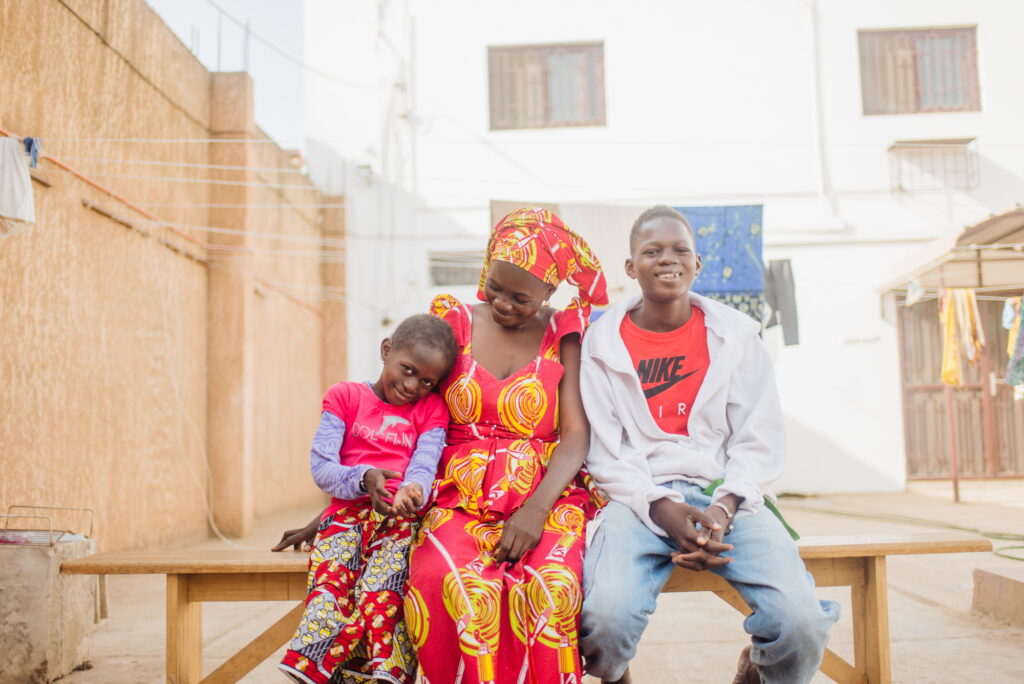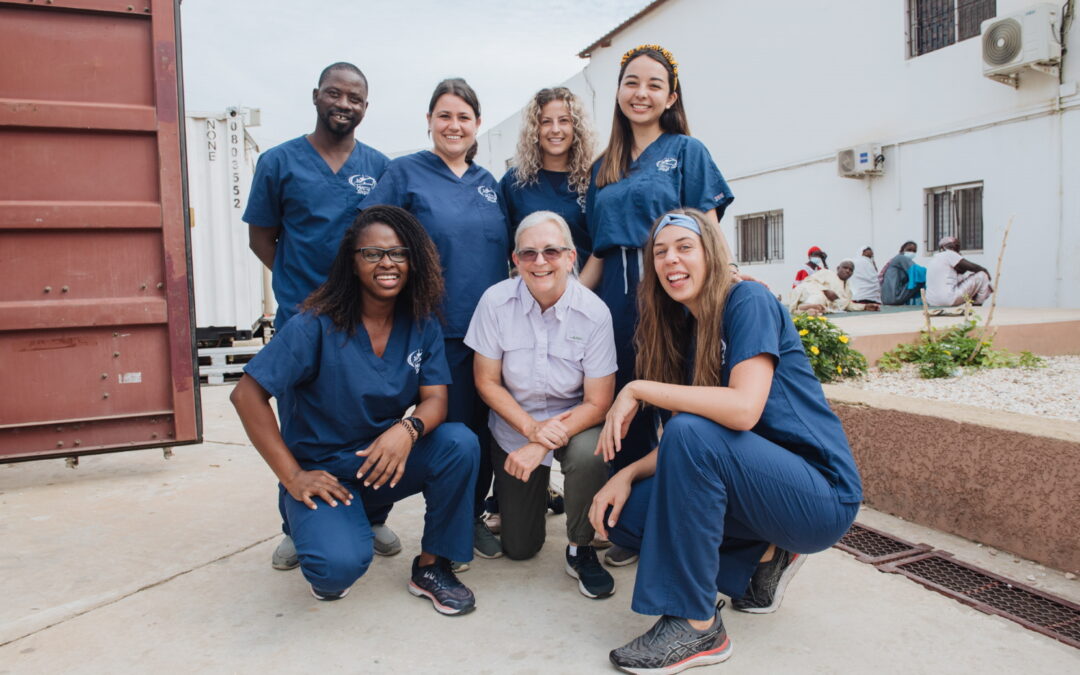It was an episode of 60 Minutes that changed the course of Martha Rodriguez’s life.
As she watched the show from her Texas home in 2013, she was captivated.
The episode was about a Mercy Ships hospital ship, and Martha immediately knew she wanted to be a part of it.
Her adventurous spirit and desire to help others had already prompted her to join the Peace Corps at 23. But for the past 19 years, while her two daughters grew up, she’d worked at a chemical factory. With her youngest now grown, she felt ready to go and serve others again.
Within months she had quit her job, sold her house and car, and left for the Republic of the Congo to volunteer on board the very ship she saw on TV – the Africa Mercy®.
Finding Hope
When she arrived in the Congo in 2014, Martha volunteered as the Dining Room Team Leader. In 2015, she was asked to manage the Hospital Out-Patient Extension (HOPE) Centre.
Located not far from the dock, this place is the epicentre of healing and growth for patients who receive surgery.
Patients stay at the HOPE Centre prior to their surgery, and again during their recovery. They often form their strongest bonds at this home-away-from-home, staying anywhere from a week to several months.
“From the very beginning when a patient comes pre-op, we look at them for the person that God made them and not the condition that they have,” Martha said. “We treat them with love and continue to love and help them throughout their treatment.”
The staff, including local Day Crew and international volunteers, are just as impacted as the patients.
“The HOPE Centre is just a big family,” HOPE Centre volunteer Ruth Penda said. “Whatever they give, the patient gives back to them. The love they give, they receive it back.”
Unspeakable Condition
Over her years at the HOPE Centre, Martha has met many women who suffer from an obstetric fistula (OBF), caused by a traumatic childbirth and a lack of sufficient maternity care.
In Africa, an estimated 2 million women and girls endure this condition, which often leaves them in pain, incontinent, and isolated. Sometimes they are also left childless.
“They don’t make eye contact and you can feel their shame, but you can see the longing in their eyes that they want to be healed,” Martha said. “You can sense how they have been treated.”
Over and over, Martha has watched the transformation, as an intense camaraderie forms among these women.
“Fistula patients come and meet each other and realise they are not the only ones,” she said. “They have often been so isolated and then they meet other patients like them, and they end up supporting and loving each other.”

Siblings Teneng, left, and Ibrahima, sit with their mother Fatoumata, at the HOPE Centre after they have been discharged from the hospital on board.
Bonds Formed by HOPE
Seven-year-old Teneng and her older brother, Ibrahima, boarded the Africa Mercy in 2022 to have their cleft lips repaired. But for Teneng, it was in the HOPE Centre where another kind of healing took place.
“She doesn’t have many friends and likes to stay away from people,” her mother, Fatoumata, said as she described Teneng’s intense shyness.
But throughout her stay at the HOPE Center in Senegal, Teneng began to open up. Her mother watched her make friends, connecting with the other children and the volunteers.
Likewise, Benjamin, one of the first patients to receive surgery in Senegal in 2022, formed precious friendships with the local day crew and staff at the HOPE Centre. When he was discharged, he left this letter with members of the day crew: “I know that you will miss me and I will miss you too, but I will be praying for you, and also, you will be in my mind,” he wrote. “It is not because of the healing, but because of the faith that you have.”
For Martha, the memory of one young patient stands out. Paul, born with a cleft palate that made it nearly impossible for him to nurse. At just three months old, he was slowly starving.
Paul and his mother, Francoise, spent several months with the HOPE Centre’s Infant Feeding Program, where Paul gained more than 4kg.
“We became friends with his mother and shared in her joy watching Paul get better,” Martha said. “It was amazing when he was able to have his surgeries because he had put on enough weight.”
Martha said every experience with each unique patient reminds her why she’s here.
“Most of our patients, most profusely, thank us for the care they have received,” she said. “But you feel often that we have got so much in return, just watching their transformation.”

Recent Comments